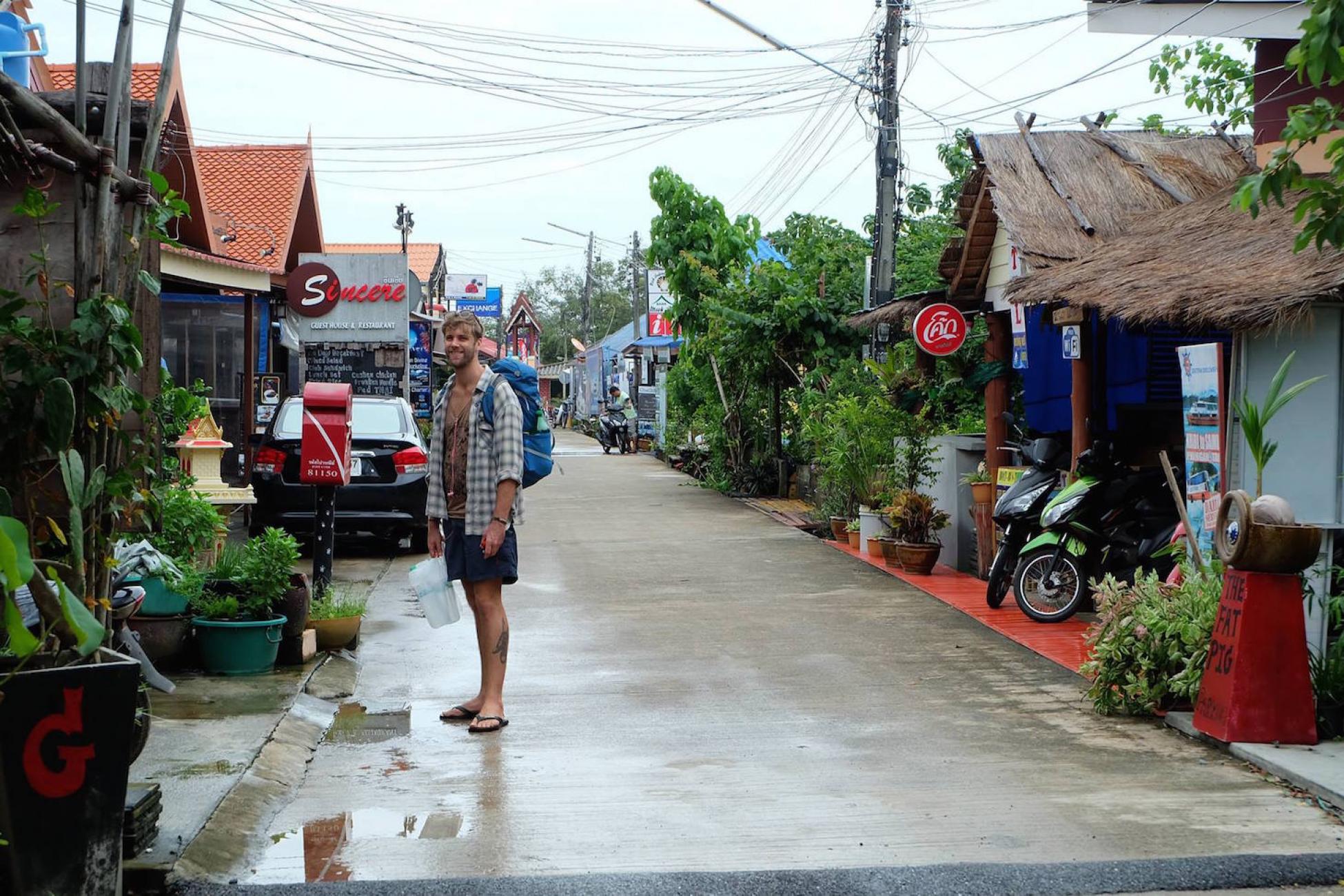Deciding to pack your bags and travel is a big choice to make, especially when you’ll be setting up a whole new life in a different country. Oftentimes, you’ll hear people talk about how buying the plane tickets is the hardest decision you’ll make. While that may be true once you’re settled down, it certainly doesn’t feel that way before you arrive.
After I had decided to move to Thailand to teach, I was terrified of all the things I didn’t know. I didn’t know if there would be like-minded people or how I’d cope in a city that wasn’t set up for tourism.
In spite of my fears, the tickets were bought and so off I went. As with all things in life, the unknown is hardly ever as scary as we would imagine. If you're heading to teach in Thailand, here's what you can expect.
Talking Thai
If you’ve decided that you want to work in the big cities of Thailand—namely Phuket, Chiang Mai or Bangkok—then you’re never really going to have to worry about situations where you’re unable to communicate. These cities have so much experience with English travellers that you could live comfortably for several years without ever having to learn a lick of Thai. While I think you’d be doing yourself a disservice by not trying, it certainly won’t impede you from enjoying whatever kind of life you’d like.
As with all things in life, the unknown is hardly ever as scary as we would imagine.
However if you're like me and decide that you’d like to try out one of the smaller cities, then things are a little trickier. English is not as prevalent in the country as you may like and you’re going to have to adapt if you don’t want to be stuck ordering variations of fried rice.
It took me a while to figure it out, but really the most important thing to do is to put your ego aside and feel good making a fool of yourself. Work out the basics of the language from the Internet or people you know, and use that to ask the names of meals that you see around you. The Thai people will love to laugh at you, but most often it’s completely good-natured and they will be more than happy to help you stumble your way through their language. The more you can let go of yourself, the quicker you’ll fall into the language and the richer your experience will be.
Cultural Rules
No matter what part of the country you find yourself in, you’re going to experience a culture that’s markedly different from your own. Even in Bangkok and Phuket—which have been more influenced by Western culture—the way that Thai people conduct themselves is strongly rooted in traditional customs. Casual tourists often overlook Thailand’s more conservative nature and run afoul of local communities and law enforcement. It’s certainly no reason to worry though, because common sense and a little respect will keep you in good faith with the people of Thailand.
The real difficulty in adjusting to the culture comes with the little things that aren’t always obvious. Thai people won’t want to make you look bad by calling you out, even if you’re the one who is making everyone uncomfortable. (They really are that nice.) Cultural rules around feet (don’t show them to people or put them up on counters/bar tops) and shoes (don’t bring them inside) are some of the easier rules to catch, but there are a few subtleties in the way people behave, which you might miss if you’re not paying attention.
If you’re coming to Thailand to teach here’s a couple quick tips for fitting in around the office: Don’t open doors with your feet, don’t sit on desks (place for knowledge and learning) and don’t come to work in capri or cropped pants, as that’s far too casual for a teacher.
Being Social
Like with any country, the big cities of Thailand are going to have a rich and dynamic social scene for you to engage in. Do you like competitive board gaming? CrossFit? Geocaching? Bangkok will have it, and if any of those don’t cut it for you then the never-ending variety of the food and drink will keep you more than content during your after work hours. Bangkok has been, for better or worse, influenced heavily by the constant stream of international arrivals.
Living in the smaller cities is a little different and the kinds of social options you have is going to vary from place-to-place. When I first arrived in my city, there was very little variety in what you could do in the evenings. There were a couple of straightforward gyms where you could exercise, a simple park if you could bear the heat, and a handful of restaurants, bars and clubs. It was certainly an adjustment coming from the variety of options I was used to in Cape Town, but it didn’t take long to adapt to a different kind of life.
What happens is that you find yourself bonding with fellow teachers who are also experiencing this change in lifestyle. You forge friendships quicker because of your shared challenges and you’ll soon find that the way in which things are different actually become the parts you and your new friends enjoy exploring the most.
"Mai Pben Rai" ("No Worries")
No matter how much you read about what to expect when deciding to move countries, I think it’s almost impossible to not feel a bit of apprehension. Looking back on the obstacles I had to overcome makes me realize how, as clichéd as it might be, those moments were a chance for me to learn more about myself and the world.
As long as you keep an open mind to new people, both from the culture you’re visiting and those following a similar journey to your own, then there’s nothing that you can’t overcome

